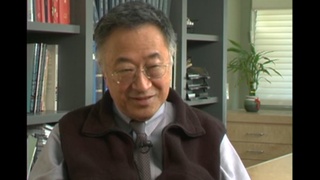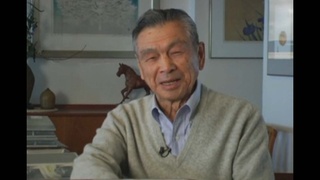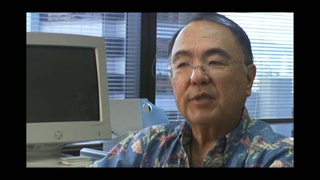Interviews
Response to loyalty questionnaire
My parents didn't say very much, except that they said, What good is your citizenship? You claim that you're Americans, and you were so proud of your citizenship, but here it didn't mean anything. We were in camp just like the Isseis, and we didn't have no say-so or anything. So they didn't, they, of course, thought, Why in the world would anyone want to volunteer, go into the army and fight for the United States, to give up their life for a country that had them imprisoned? So I think that it was a logical thought for Isseis to think that way, because here we were, we were all in the same boat.
Date: September 15-17, 2004
Location: Washington, US
Interviewer: Alice Ito
Contributed by: Denshō: The Japanese American Legacy Project.
Explore More Videos

His experiences in Chicago after WWII
(b.1929) Pioneer medical researcher in tissue transfer and organ transplantation.

Citizenship and identity
(b. 1967) Hawai`i-born professional fighter in Japan


Less information about Hawai‘i in mainland
(b.1944) Founder of Kobayashi Group, LLC


A teenager's memories of how a local newspaper misrepresented Japanese Americans
(b. 1925) Draft resister

The role of the media in influencing people's opinions
(b. 1925) Draft resister

Reaction to a 1942 speech by Mike Masaoka, Japanese American Citizen League's National Secretary
(1915 - 2011) Nisei florist who resettled in New York City after WW II. Active in Japanese American civil rights movement

First learning about the incarceration experience in college
(b. 1955) Lawyer


Feeling angry upon reading of Supreme Court case, 'Korematsu v. United States'
(b. 1955) Lawyer

Is 'Korematsu v. United States' still a threat to American civil liberties?
(b. 1955) Lawyer

Reasons for conformity and competitiveness in Gardena, California
(b. 1946) Lawyer

Role of the redress movement in helping Nisei to open up about their wartime experiences
(b. 1946) Lawyer

